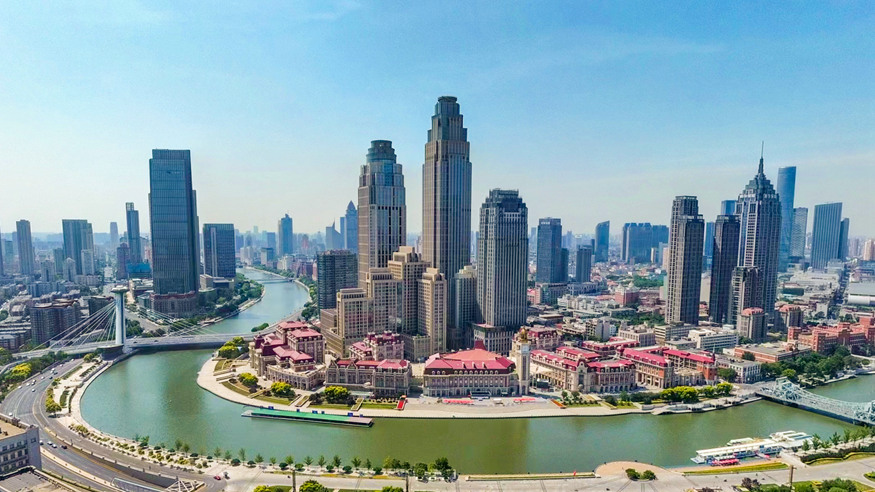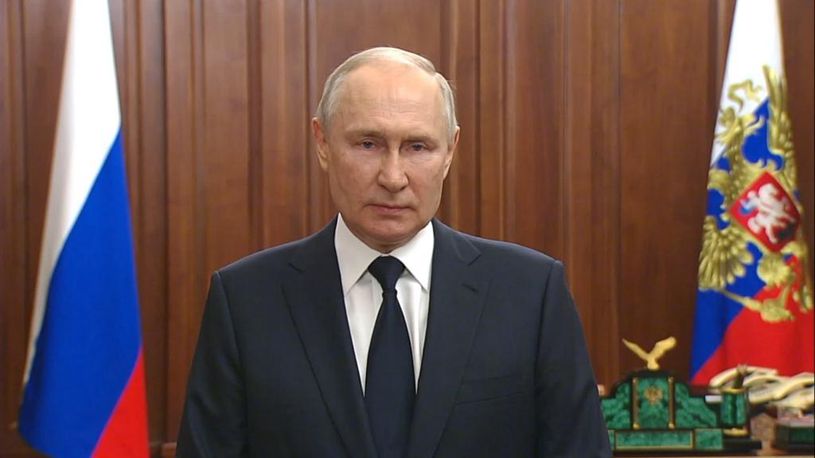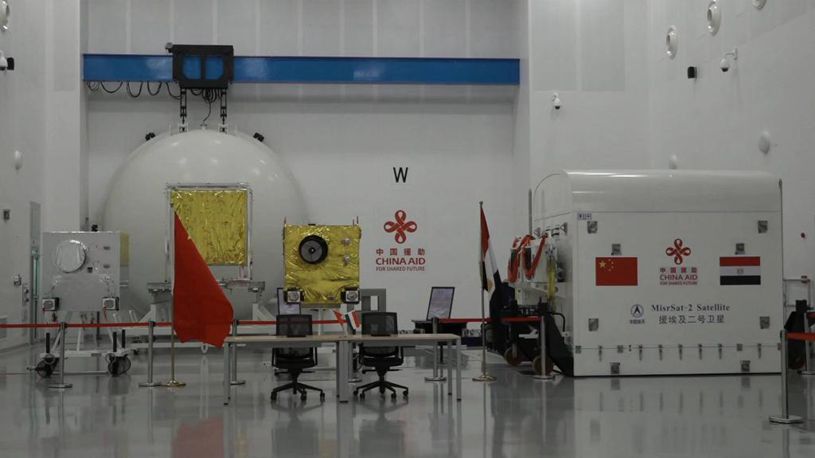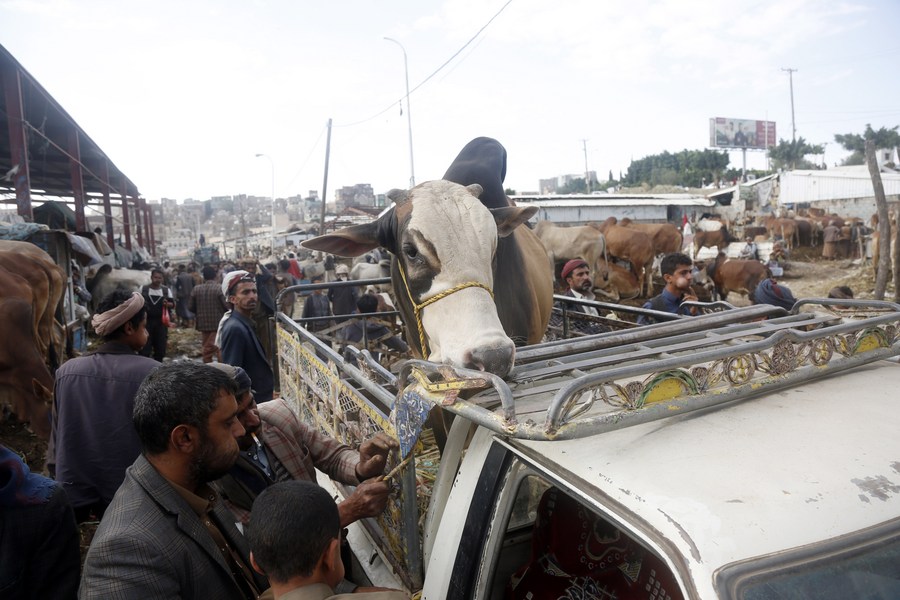
People shop at a livestock market ahead of Eid al-Adha in Sanaa, Yemen, on June 25, 2023. (Photo by Mohammed Mohammed/Xinhua)
SANAA, June 27 (Xinhua) -- Despite the longest cease-fire in years in war-torn Yemen, residents of the capital Sanaa are still financially strained to buy traditional sacrificial animals for Eid al-Adha as the exorbitant prices of livestock are simply unaffordable for them.
"The price of livestock has risen by five to six times," lamented Abdullah al-Jumari, a resident of Sanaa who visited a local livestock market. "It's simply unaffordable, not only for me but for nearly everyone here at the market."
The ongoing civil war has inflicted a devastating toll on the livelihoods of Yemeni people. Millions have lost their jobs and the economy lies in ruins. Consequently, many individuals are struggling to make ends meet.
"I used to work as a teacher, but my job vanished when the war broke out," al-Jumari said.
"Now, I'm scraping by as a day laborer and struggling to earn enough to feed my family. There's simply no way I can afford a sacrificial animal for Eid," he added.
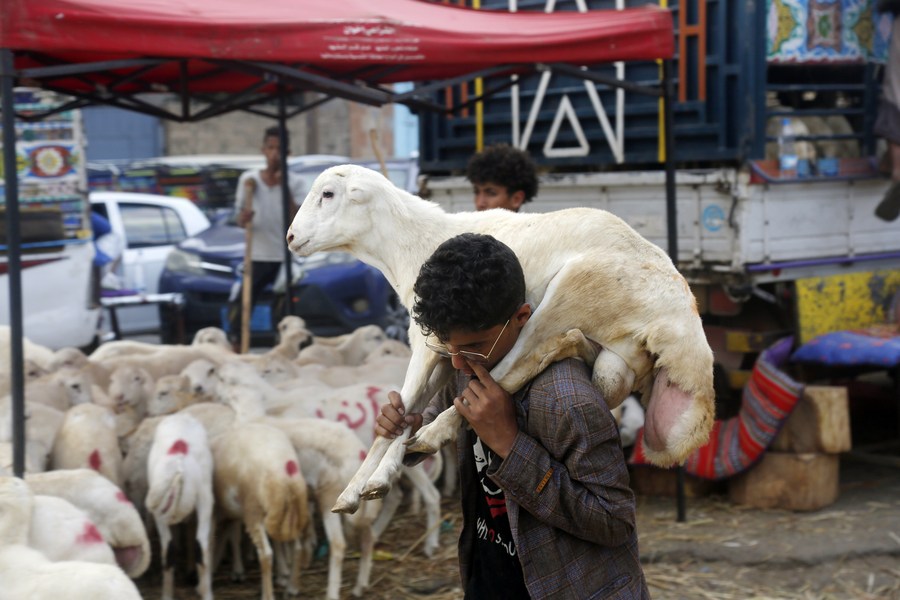
A boy carries a sheep at a livestock market ahead of Eid al-Adha in Sanaa, Yemen, on June 25, 2023. (Photo by Mohammed Mohammed/Xinhua)
After lingering at the market for several hours, al-Jumari left with only about one kg of beef.
Livestock traders are also facing significant challenges. The skyrocketing cost of animal feed has made it arduous to raise livestock, and the lack of customers has forced many traders out of business.
"In previous years, I would sell 100 sheep for Eid al-Adha," said Ahmed Al-Awami, an animal seller in Sanaa. "But this year, I consider myself fortunate if I manage to sell 10. People simply lack the financial means to purchase animals."
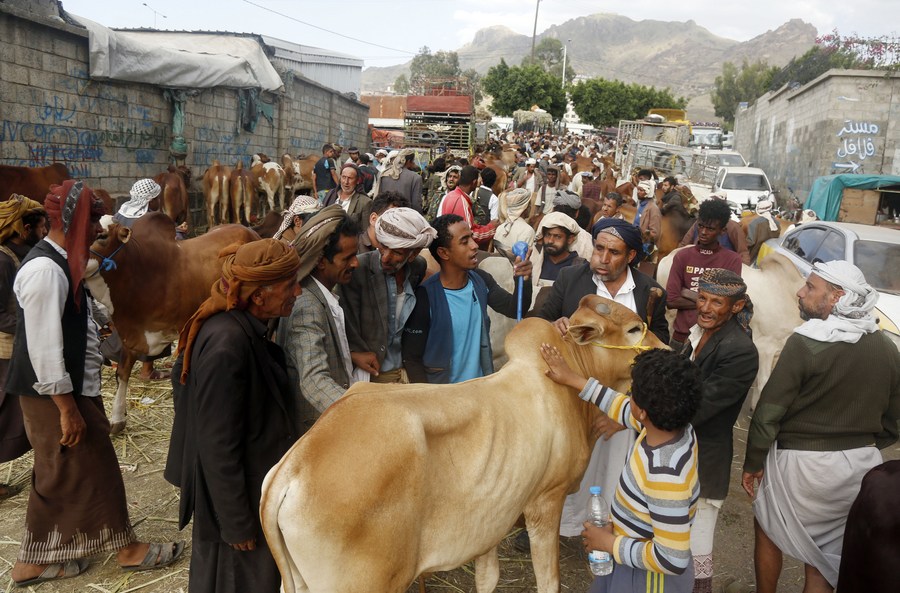
Yemenis shop at a livestock market ahead of Eid al-Adha in Sanaa, Yemen, on June 25, 2023. (Photo by Mohammed Mohammed/Xinhua)
Yemen's economy had already been in crisis before the Houthi rebels captured Sanaa in September 2014, triggering one of the worst humanitarian crises in the world. Hundreds of thousands have died in the conflict, from either the fighting directly or the lack of food and water indirectly.
According to the United Nations, more than two-thirds of Yemen's population live in poverty, including government employees in Houthi-controlled areas who have not received salaries for years.
Hans Grundberg, the UN special envoy for Yemen, highlighted the detrimental impact of "economic warfare" between the opposing parties that has exacerbated the country's problems.
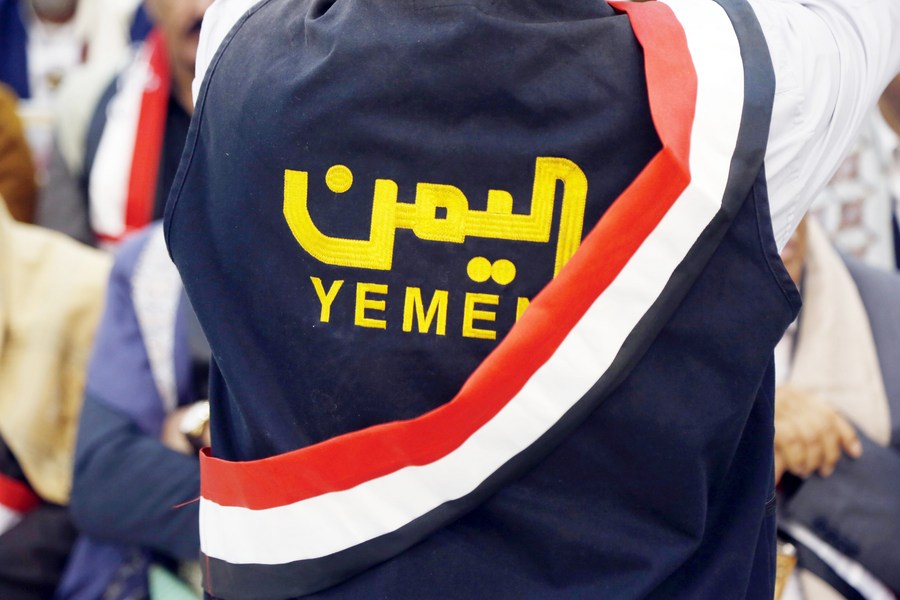
A man wears a coat decorated with the name of Yemen and its national flag during a ceremony held in a mosque in Sanaa, Yemen's capital, to mark the 33rd anniversary of the Unity Day of Yemen, on May 22, 2023. (Photo by Mohammed Mohammed/Xinhua)
"While the parties have taken some steps forward, they have unfortunately also taken steps backward," he said in the Yemen International Forum in The Hague this month.
"Economic escalatory measures and countermeasures taken by the parties have further damaged Yemen's already struggling economy," Grundberg added. ■



